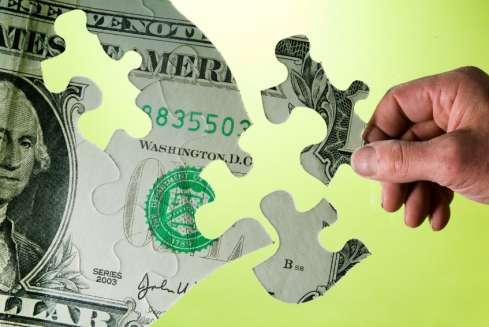By Jimmie Covington
The assessed value of property for tax purposes in Memphis and Shelby County has dropped overall for the second year in a row, according to certified tax roll figures released recently by the Shelby County Assessor’s Office.
However, the drop was lower than in 2013, a reappraisal year, and was expected as a result of successful appeals to the county Board of Equalization plus slow economic growth overall.
Although the countywide assessed value dropped 4 percent in 2013 from 2012, property owners filed 27,200 appeals with the equalization board. The 2012 to 2013 drop was attributed to the housing bust and economic downturn. The Memphis drop in 2013 was 2.4 percent.
This year, the assessed values declined 3.5 percent in Memphis and 2.1 percent countywide compared to the figures a year ago. Only Arlington, Collierville and unincorporated Shelby County saw value increases this year, the tax roll figures show.
Although property tax rates were increased last year in Memphis, Shelby County and in most if not all suburban cities to offset the effect of the reappraisal, a majority of homeowners across the county paid lower property taxes compared to 2012 as a result of the reduced property values. About two-thirds of homeowners paid lower county property taxes than in the previous year.
Many businesses, however, paid higher county taxes.
Any tax rate increases approved by local governments this year would reflect a tax increase for most property owners.
And since local governments included appeals allowances in setting tax rates last year, it’s unlikely that the lower values this year will result in revenue shortfalls for the governments.
This year’s values also will be subject to appeals to the Board of Equalization.
The assessed value figures can be considered indicators of where growth is occurring.
Property tax rates are applied to each $100 of assessed value. Residential and farm properties are assessed at 25 percent of the appraised values established by the Assessor’s Office and commercial and industrial properties are assessed at 40 percent.
Shelby County Assessed Values
Places 2013 2014 Difference
Shelby County All $17,040,573,160 $16,677,788,335 -$362,784,827
Memphis $10,536,759,560 $10,168,275,593 -$368,483,967
Arlington $268,383,775 $273,687,540 +$5,303,765
Bartlett $1,136,673,030 $1,131,406,402 -$5,266,628
Collierville $1,446,885,170 $1,452,527,470 +$5,642,300
Germantown $1,409,489,585 $1,401,441,890 -$8,047,965
Lakeland $307,262,405 $306,409,940 -$852,465
Millington $168,185,180 $164,129,730 -$4,055,450
Unincorporated $1,766,934,455 $1,779,909,770 +$12,975,315
Source: Shelby County Assessor’s Office




Another view of assessed value of property:
Between 2013 and 2014, Memphis values decreased 3.5%, and outside of Memphis assessed values increased almost 1% (+.09%). If Memphis could lower property tax rate and turn around several neighborhoods, property values would not continue to decline.
Lowered property values and increased property taxes can not continue if Memphis is to become a city of choice. That’s why Memphis needs a land use revitalization plan with property value goals and yes, have strategic tax free zones and TIFs as implementation tools while limiting PILOT approvals throughout Shelby County.
Property investment levels in Memphis must be a high priority of Shelby County institutions and clearly stated.
It’s always so tempting to believe that lowering basic tax rates will solve the problem of outmigration from Memphis. Consider, however, that lower tax rates by themselves will not increase the value of properties, and will therefore result in less overall revenue.
Less revenue means fewer basic services such as, for just one example, street repairs in a city that is already on a 90 year(!) repaving cycle. Fewer services and a deteriorating public realm will increase, not decrease, the rate of outmigration as the most talented middle class residents relocate to more livable cities.
As a community, we must agree to find the courage both to stop giving away our revenues through unnecessary and gratuitous PILOTs, and simultaneously to invest those resources in making our city the most livable, attractive, desirable place it can be.
Correction: Increase in property values outside of Memphis is not “almost 1%” but almost .1%.
RBUD: We agree. …..”lower property taxes AND turn around (of) several neighborhoods”….. would stop decline of values, not necessarily increase values. (FH)
Jimmy- Where can I get the complete list of every zip code’s assessed value? Thanks,
Steve Lockwood, Frayser CDC, slockwood@fraysercdc.org
The source of the information is the Shelby County Assessor’s Office. I am not sure they break it down by zip codes.
Finegold Hasava said: “That’s why Memphis needs a land use revitalization plan with property value goals and yes, have strategic tax free zones ……..”
I’m glad to see that Mayor Wharton’s just released Blueprint for Prosperity (CA 5/4/14, “Inequality in Memphis: Wharton proposes roadmap out of poverty, into prosperity”) essentially recommended the same action, but I wonder about a new layer of bureaucracy to be created called the Center for Prosperity and Empowerment?
We already have the Memphis and Shelby County Office of Sustainability and Office of Planning and Development, Memphis Tomorrow’s Fast Forward (with EDGE), the Memphis Division of HCD/MHA, the Chamber of Commerce’s “moon shot” to update the Comprehensive Plan and a few others. We need to sort through all of this and simplify things. The MPO’s damn Long Range Transportation Plan is already making it difficult to create value in Memphis. Emperor Suburb, tear down this wall.
FH
It seems a land value tax instead of the current property tax would be a welcome change. Less arguing over appraisals (because of no or very low tax on improvements), and incentive for property owners to develop blighted property.